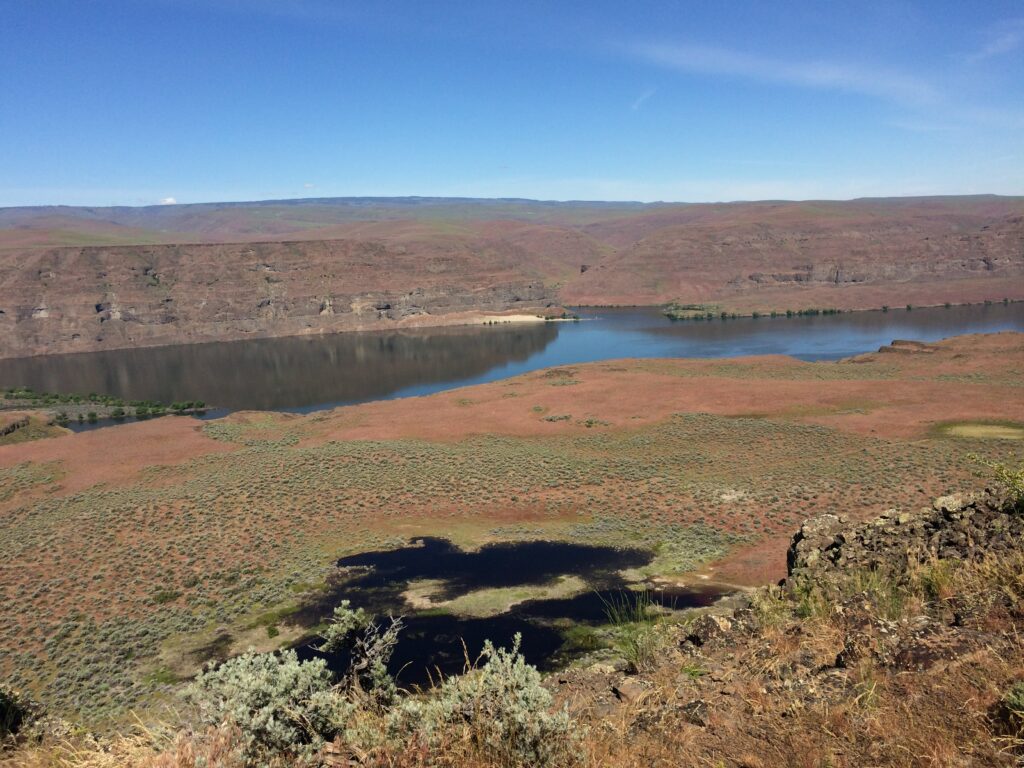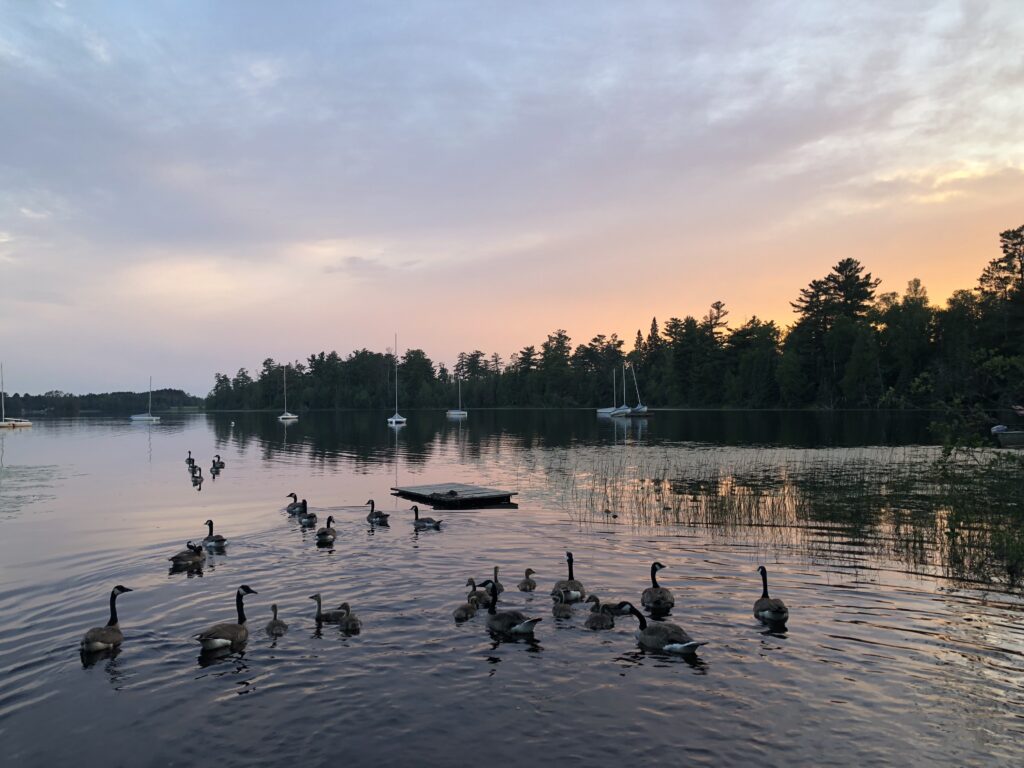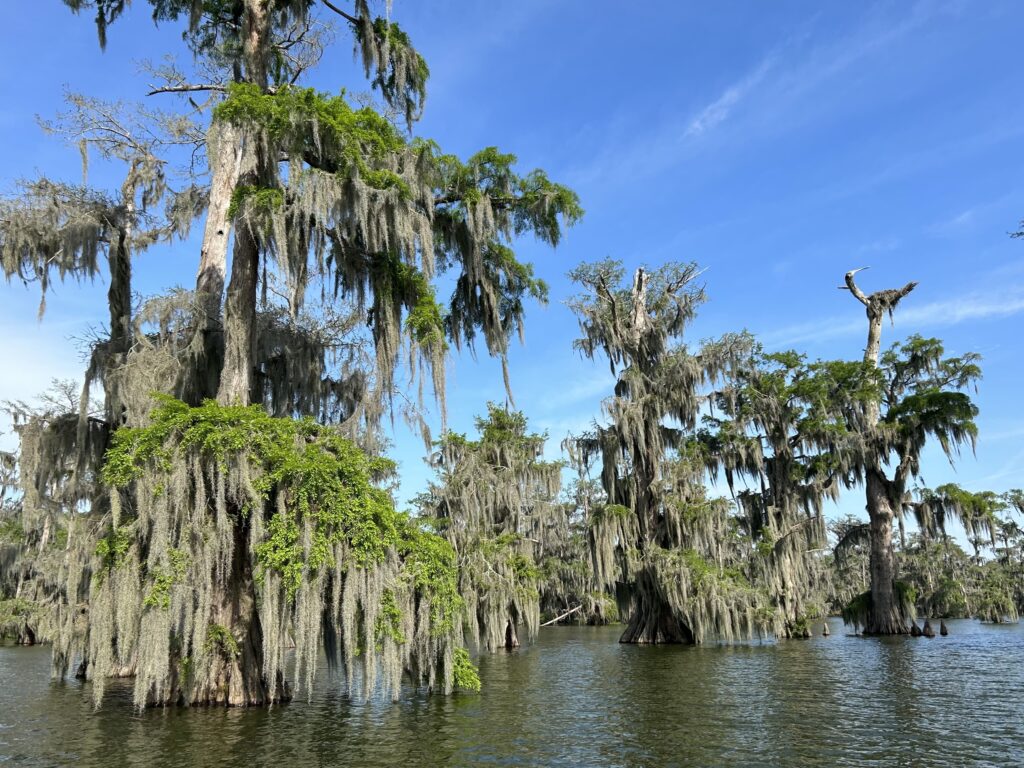Because policy is personal.
This newsletter was originally published on our Substack. Read and subscribe to our newsletter here.
There is a ripe poetic injustice to the fact that this long Memorial Day weekend in late May—a lush time of year when the generosity of this planet is so apparent—was book-ended by attacks on two of this country’s most important environmental laws.
First, the Supreme Court released its decision in Sackett v. EPA on May 25. The Alito-penned opinion weakens the Clean Water Act by dismantling decades of protections for as much as half of the nation’s 118 million miles of wetlands, and 60 percent of streams.
Then, over the weekend, rather than even entertaining his executive authority, President Joe Biden capitulated to Republican hostage-taking and negotiated a debt-ceiling deal that would weaken the National Environmental Policy Act and ram through the approval of Senator Joe Manchin’s pet fracked gas pipeline, regardless of its permits’ legality, while exempting it from judicial review. We’ve written many times before from many different angles about how this is an unacceptable deal. Congress will vote on it today.
This is a dark moment in the fights for environmental justice; for public health; for mitigating climate change; and for democracy in this country, in the face of massive imbalances of power shaped by the monied interests corrupting our political system. It is also, despite everything, a beautiful moment to be alive on earth. So we thought this newsletter could be a bit different. We thought we’d give some space to articulating why we continue to fight such an uphill fight against corrosive and corrupt industry interests, and how environmental laws have quietly shaped our relationships to the land we live on and with.
Hannah Story Brown: Water in the West and East
A river carries the pollution of every place between its beginning and its end. Both of us writing this newsletter have experienced the disjunction between what a river offers where it’s clean—water, food, pleasure, beauty—and the hazard a river becomes from pollution upstream.
I grew up swimming in the Columbia River in Washington state, heedless of the fact that if my relatives had lived just dozens of miles downstream, I would have been swimming in water polluted by radioactive waste from the Hanford Nuclear Site—the most polluted place in the United States, where plutonium was developed for the atomic bomb the United States dropped on Nagasaki, killing tens of thousands of people. These are the ancestral lands of the Yakama Nation, who continue to lead the work to clean up the site’s nuclear contamination, pushing federal regulators to do more and faster.
Years later, living farther south in Oregon, our dog grew sick from just a quick dash into the shallows when we walked him along the riverbank where the Columbia and Willamette Rivers meet. I’ve never gotten over the profound disparity between living in a place where water was welcoming, and a place where the water posed a threat. This profound inequality is precisely what federal environmental law should seek to rectify.

Photo by Hannah Story Brown: Eastern Washington, May 2017
The wetlands in the foreground of the photo above are vernal pools—seasonal wetlands that form in the endangered shrub-steppe ecosystem, and create pockets of greenery that support all sorts of wildlife, from songbirds to deer to rattlesnakes. They’re lush in May, gone by July. You can see the magnificent Columbia River in the distance. These sorts of wetlands will no longer be protected by the Clean Water Act, thanks to the concerted efforts of corrupt corporate interests, and five greedy amoral judges on the Supreme Court. Yet both the wetlands and the river are inarguably connected by groundwater, serve the same complex and fragile ecosystem, and are vulnerable to the same pollutants, like the invisible clouds of pesticides that carry from nearby alfalfa fields and apple orchards.
When I visited my partner’s family in Massachusetts over this Memorial Day weekend, I walked through the woods behind the house to where water springs from the earth. This little spring seep, buried beneath sodden leaves, in the wetter months sends water trickling downhill into a creek that feeds a river; a river which in turn feeds the Connecticut River, which runs for hundreds of miles into the Long Island Sound, and eventually the Atlantic Ocean. Sackett would allow me or anyone to pour chemicals into this intermittent stream, or to fill it up with concrete. This is such a frightening thought.
Of course, the flipside of recognizing how many people we can inadvertently harm through our actions is recognizing how much we are all connected, bound up in a shared fate. When we endeavor to think more about those connections, and when we fight for our laws to help us be good neighbors to each other—good stewards of the land we live on—we can live in ways that sustain what we share.
Dorothy Slater: Water in the Midwest and South
I grew up in Minnesota: the land of 10,000 lakes, including the unthinkably huge, remarkably clean, Lake Superior and the gorgeous, federally protected Boundary Waters Canoe Area and Wilderness. My state is home to the headwaters of the mighty Mississippi River. My upbringing was dotted with dips in cold lakes up north and in temperate lakes throughout the city of Minneapolis. I would wade along the banks of the Mississippi River for hours on end, splashing with my family’s dog. Thanks to the Clean Water Act and millennia of Indigenous stewardship of those waters, I never had to be concerned about pollution. For me, the water offered only joy.

Photo by Dorothy Slater: Half Moon Lake, Minnesota, June 2018
I moved to Louisiana as a young adult, ready for my years somewhere “warm and different,” as I described to anyone who asked—but somewhere that felt right in my bones, knowing I had generations of family who lived and are buried here. Wading along the banks of the Mississippi River here, 2,340 miles south of where the river begins, is a completely different experience. I would not recommend it. Here, a couple minutes in the water will leave your ankles burning from chemical runoff, and your view across the river is defined by a dozen different types of fossil fuel infrastructure. John Prine’s “Paradise” comes to mind.
The water down here is burdened by thousands of miles of collected agricultural and urban runoff, which creates a massive dead zone in the Gulf of Mexico each summer. The Mississippi River Basin Ag & Water Desk reports on the outcome of the Sackett v. EPA decision: “fewer wetlands to soak up pollutants in the upper basin means more of those pollutants will instead end up rushing downriver, adding to the dead zone in the Gulf of Mexico.” We will feel the impact of the weakened Clean Water Act acutely here in Louisiana, where the state’s water quality program is tied to the federal definition of protected Waters of the United States.
Water in Louisiana is respected and nurtured by so many people who depend on it for their lives and livelihoods. It’s also feared, rightfully so, for its staggering power during hurricanes and floods. Coastal wetlands are gently stewarded by hardworking individuals who know their existence means the difference between life and death during a storm surge. The truth is, the coming deregulation will upset the fragile equilibrium we already struggle to maintain, and will offer a future of further unthinkable harms we may well not be able to manage.

Photo by Dorothy Slater: Lake La Pointe, Louisiana, March 2023
We continue to swim upstream against corporations and the oligarchy running this country because we know the simple joy of a crisp, cold lake or a glistening river; for the peace of a warm, brackish swamp peppered with dreamy Spanish moss. Because all of this water, whether the Supreme Court says so or not, is connected, and provides for life as we know it. There is a vision of good citizenship that emerges from following the water, and tracing all the lives that depend on its continued health.
The Supreme Court’s decision in Sackett did not just disregard the plain statutory language of the Clean Water Act; it also willfully ignores third-grade earth science. The brand new test that the conservative court (sans Kavanaugh) came up with for deciding whether a wetland should be protected by the Clean Water Act depends on whether that wetland is visibly connected to navigable waters, i.e. whether the “wetland has a continuous surface connection with that water, making it difficult to determine where the ‘water’ ends and the ‘wetland’ begins.” But that is simply not how water works. Water also moves underground, passing through soil and sand and rock, under walls and roads. The water cycle means that quite literally all of the water on this planet is connected by its continuous movement through the earth and atmosphere.
The insistence from Justices Alito, Roberts, Thomas, Gorsuch, and Barrett that we should only recognize interconnectedness in cases where it isn’t clear where one thing ends and another thing begins is also a good encapsulation of what’s broken about our current paradigm. It is this ignorant philosophy which drives us towards the existential breaking point of climate change. And water is a particularly potent way to think about the crucial relationships we overlook.
We’re thankful for all of you who are in this fight with us. The joy that comes from clean, safe water in all its forms is deemed an easy sacrifice by profit-seeking corporations and apathetic government leaders. But it will always be worth fighting for.
Follow the Revolving Door Project’s work on whatever platform works for you! You can find us on Twitter, Facebook, Instagram, Mastodon, and Post.
Want more? Check out some of the pieces that we have published or contributed research or thoughts to in the last week:
Being A Board Member Is Hard, Just Ask Larry Summers
A Way Out of the Debt Ceiling Crisis
14th Amendment Questions Linger Despite Debt Limit Deal
White House Says GOP Is Trying to ‘Take Food Out of the Mouths of Hungry Americans’
As Deals Go, This Is One of Them
Debt ceiling agreement targets the poor while protecting the wealthy
The Hazardous Passage of the Debt Ceiling Deal Through Congress
Push for IRS Cuts Confirms Top GOP Priority: ‘Enabling Tax Cheating by the Super-Rich’
